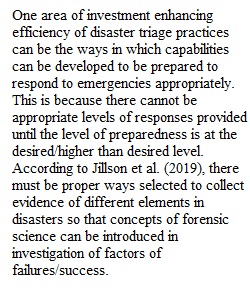


Q Strengthening the preparedness of the United States to prevent, protect against, respond to, and recover from threatened or actual terrorist attacks, major disasters, and other emergencies is a shared responsibility of public and private organizations. The Centers for Disease Control and Prevention (CDC) plays a leading role in preparedness and response activities as well as building and strengthening our national health security. CDC's Office of Public Health Preparedness and Response (OPHPR) works with state, tribal, local, territorial, national, and international public health partners to create the expertise, information, trainings, and tools that public health practitioners, people in communities, and partner organizations need to protect their health from natural and manmade threats. This article provides an overview of the OPHPR's Preparedness and Emergency Response Research Centers (PERRCs) program, the first and only program of the U.S. Department of Health and Human Services (HHS) to use a public health systems research approach to investigate and improve the complex public health preparedness and response (PHPR) system. http://www.ncbi.nlm.nih.gov/pmc/articles/PMC4187302/ Propose 2-3 research areas where investments may improve the consistency of disaster triage practices across locales and regions. ************************************************************************************************************************************* ALL FORUMS Initial Response: Initial responses should be no less than 450 words in length not including your reference(s) and supported by at least two references (aside from the textbook). Initial responses are due no later than 11:55 p.m. ET on Wednesday, Day 3 of each week. This allows time for other students to respond to your initial response. Please be aware that just “cutting and pasting” sections of articles (in lieu of writing an original initial post) is not acceptable and will negatively impact your grade. Peer Responses: Students are required to respond to at least two (2) other student’s initial postings (and the instructor) with significant comments that have substance. Peer responses are due no later than 11:55 p.m. ET on Sunday, Day 7 of each week. All peer responses must be substantial and significant and should be no less than 200 words in length not including your reference(s) and supported by at least one reference (aside from the textbook). If possible, one of the responses to another’s work should be from an opposing viewpoint. Your response to your peers work should be engaging and informative with good substance (just stating “I agree…” is not acceptable). Your responses should contribute in a meaningful way to helping advance our knowledge of the topics the class explores. Your responses to another’s work should be posted as a sub-thread to the student’s original posting of whom you are commenting. For all Forum activity, students are encouraged to use the APUS Online Library to search for references that help support their argument (in addition to textbook material). All posts should contribute and advance the class knowledge of the course themes. The Forum provides an opportunity for everyone to analyze work from many different perspectives. Late Forum posts receive a 10% per day late penalty. If your 2 peer responses are posted after the week is ended (after Day 7, Sunday) they receive a zero, in that the discussion is over and you cannot receive credit for participation in a discussion with others after the discussion week has closed. Refer to the Forum Rubric for additional requirements and details. FORUM RUBRIC
View Related Questions